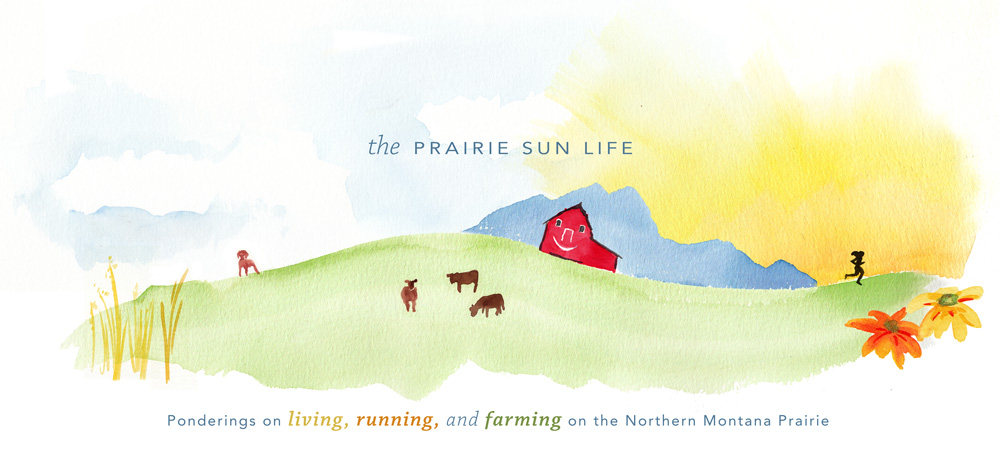As promised, a bit more info and some photos about the Montana Farmers Union Mid-Year meeting Jeff and I attended a little over a week ago. The meeting was held in Bozeman this time and the theme was, "From Seed to Table."
The three pillars of Farmers Union are Education, Cooperation, and Legislation. As a new member, I learned this at the meeting, but I'm sure Jeff knew it already. This conference leaned heavily toward the "Education" side of the triad. We learned a lot about wheat production. Everything from the down and dirty genetics of selecting traits for new breeds to milling qualities to end-use products. I took a few photos- not many- which you can see below. I found it very interesting and informative, especially because I am not from a farming background. Jeff asked a lot of great questions at nearly every different stop we made as a group, which helped me as well.
The whole conference was very timely in a few other ways as well. Recently some GMO wheat was found in Oregon. For those of you who don't know, GMO wheat is basically nonexistent and unallowable in the US wheat market. The same is not true for King Corn or soybeans, as I knew in Iowa. We can't grow GMO wheat, and our market, which is largely Asian countries, will not buy it. This is fine with Jeff and I because we aren't interested in doing much business with Monsanto anyway... (another blog topic for another time!) The Montana Farmers Union conference was especially interesting and timely on this front because I learned a lot about how wheat varieties are selected for certain traits and what exactly the difference is between selecting for traits and genetically modifying an organism.
Another reason the conference was timely was because the Farm Bill was being discussed in our national legislation. Jeff could probably go on about the Farm Bill forever, but alas, politics is not as much my thing as it is his. At least not yet. There was a lot of talk in Bozeman among all the Farmers Union people about what was going to happen with the Farm Bill. Again, the Farm Bill could be a blog topic in and of itself, as it's a fairly complex issue. At the time, the Farm Bill was in the Senate. Shame on me, but I am not aware of the Farm Bill's whereabouts at this time.
 |
| Guest speaker in front of many plots of winter wheat varieties. |
Anyway. Our first day of the conference we toured some of the MSU research fields and test plots where they are essentially testing out new varieties of crops being developed at the university. It was very interesting to see small plots of different varieties all next to each other, and to compare them. I recognized a few names I had heard before and that we had planted or others had planted in our area. We also got a few good name drops for varieties that will be released in the near future that sound very promising.
While we were touring the research fields one person asked how climate change might affect wheat growing in the future. The MSU representative had a very interesting answer. He said that while none of his work specifically addressed climate change and its affect on wheat crops, they nevertheless had data on the weather at all the various university test fields throughout the state dating back many years. Since he was not specifically gathering data with the purpose of researching the effects of climate change, he did not feel confident that he could make any definite conclusions, but he said the data definitely suggests a warming trend. He said this would likely be good for farmers in Montana for a while, as our short growing season is a limiting factor in farming productivity and crop selection. But, the data suggests that temperatures are rising faster and faster and weather patterns are becoming increasingly unpredictable, so even if there is a time period of ideal growing season, it likely would not last long. I suppose time will tell... Personally, I find his reasoning a little frightening. Again, climate change and affects on farming and food supply is another blog topic for another time.
 |
| Learning about winter canola. This test crop of winter canola obviously was doing extremely well. |
 |
| Can you spot the world's largest bumblebee??? Montana gets HUGE bumblebees! |


No comments:
Post a Comment
Thanks for reading my blog! I would love to hear what you think of this post in your comments.